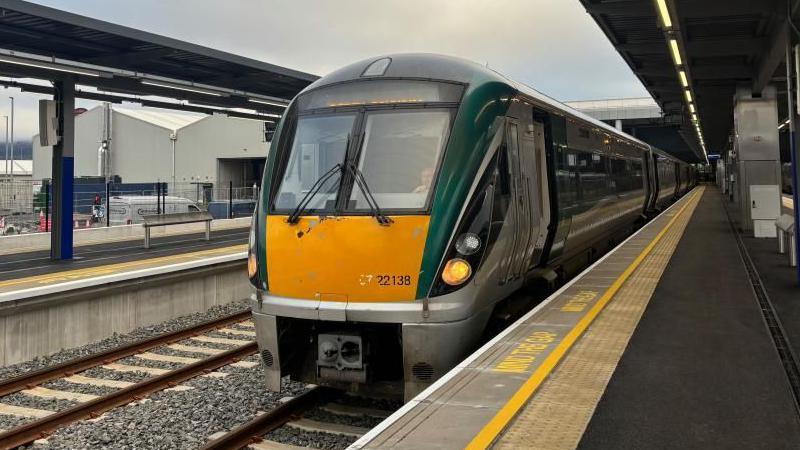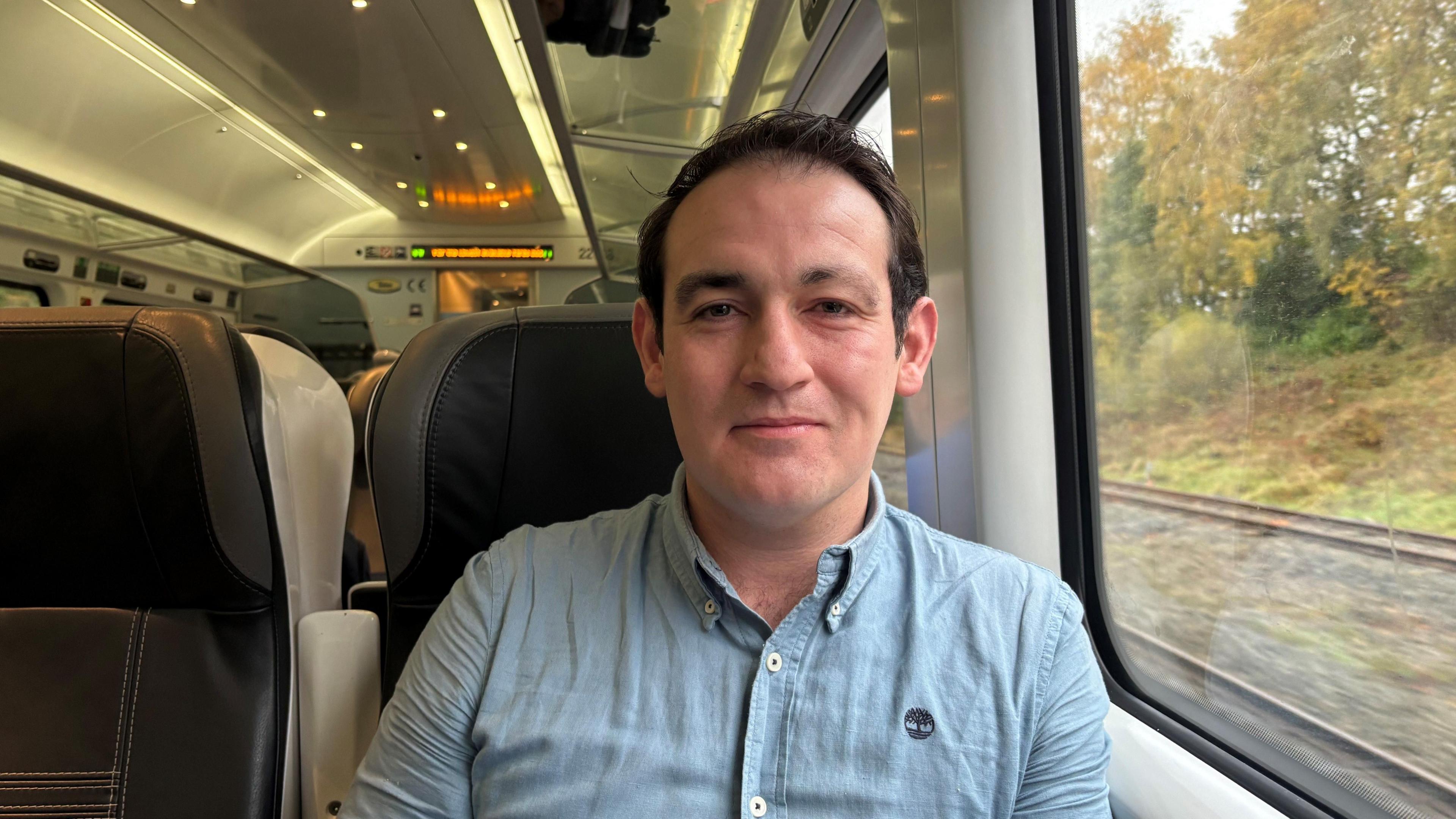Delays hit first day of hourly Enterprise service

The new hourly service was launched on Tuesday
- Published
Iarnród Éireann/Irish Rail has apologised after the first day of the hourly Enterprise service between Belfast and Dublin was hit by a major signalling fault in Dublin.
Trains leaving both stations were delayed by of up to 132 minutes, including some peak time services.
The new timetable will see 15 trains in each direction on weekdays and Saturdays and eight trains each way on a Sunday.
Iarnród Éireann said the majority of services ran on time on Tuesday and "feedback was positive".
The following trains were delayed on Tuesday:
16:50 Dublin-Belfast
17:50 Dublin-Belfast
18:50 Dublin-Belfast
20:50 Dublin-Belfast
21:00 Belfast- Dublin

Claire McDowell and her mum Sharon were delayed for about two hours
Claire McDowell and her mum Sharon were due to travel on the 18:50 from Dublin to Belfast, but they were delayed for about two hours.
"An announcement came through that the train has been temporarily suspended due to signalling problems between Drogheda and Dublin but we were kept updated with this every 10 minutes roughly," she said.
Concerned that they would miss the last connecting train from Belfast to Cullybackey, Ms McDowell approached a member of staff once they finally got on board an Enterprise service.
She said the staff member arranged a taxi for her and her mother to get from Grand Central Station in Belfast to Cullybackey.
Funding of €25m for the hourly train schedule has been provided by the Irish government and the Shared Island Fund.
The Enterprise service is operated jointly Iarnród Éireann and Northern Ireland's public transport operator Translink.
Speaking before the launch of the new timetable, Taoiseach (Irish Prime Minister) Simon Harris said the introduction of the hourly service was a "really, really important day for the all island economy, for the island of Ireland, from a public transport point of view".
Stormont Infrastructure Minister John O’Dowd said the expanded service "offers opportunities to drive jobs and growth, stimulate development and regeneration and boost access to services and education".
He also said that the move would "help decarbonise transport and encourage behavioural shift to public transport".
- Published29 October 2024

- Published26 September 2024
